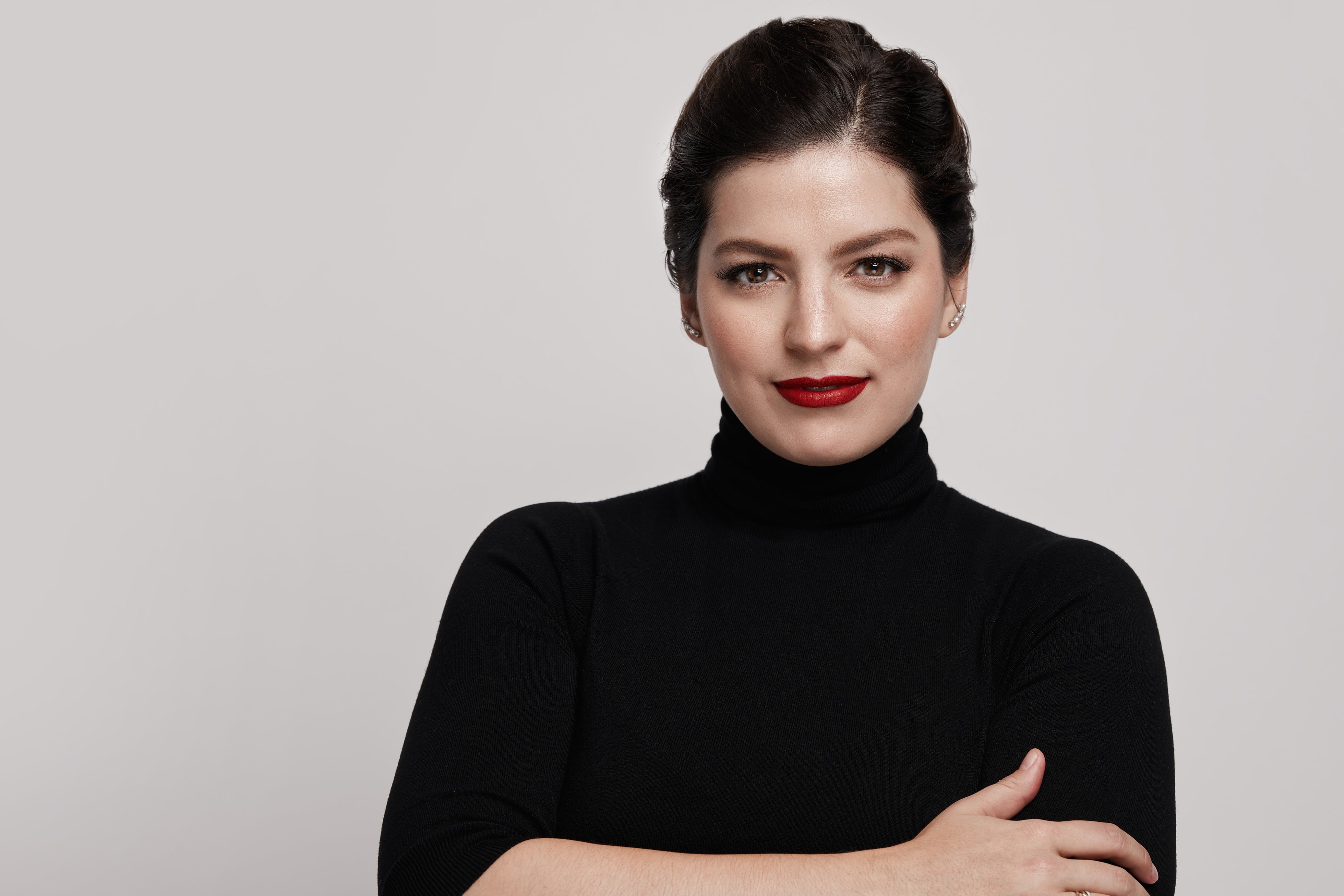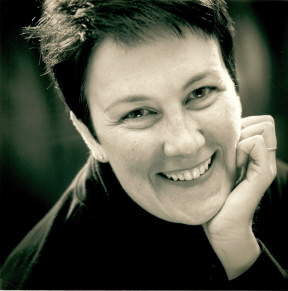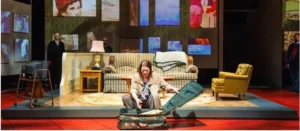Exciting news for this week!

Conductor Michelle Di Russo Credit: Michelle Di Russo
The Delaware Symphony orchestra has announced the appointment of Michelle Di Russo as its sixth—and first female—music director. The search for a new director began in 2023, and Di Russo will begin leading the orchestra in its 120th season. Her first concert (as Music DIrector) with the orchestra will be on October 10th.
Di Russo began her career in the arts as a dancer and singer in musical theater before learning about conducting and directorship. A native of Argentina with Italian heritage, she moved to the United States to study both opera and orchestral conducting, and has since worked with the Chicago Sinfonietta, the Los Angeles Philharmonic, and a enviable roster of orchestras and ballets companies across the United States. Her mentors have also been steady role models in becoming a woman conductor: Mei-Ann Chen, music director at the Chicago Sinfonietta and (formerly) the Memphis Symphony, and Marin Alsop, former music director of the Baltimore Symphony Orchestra. The DSO is thrilled to have her taking the helm, as she was the first choice of both the board and the search committee and well received by members of the ensemble. “I think it’s always exciting to be the first one to break those glass ceilings slowly,” Di Russo told Johnny Perez-Gonzalez of WHYY. “It’s also exciting to know that the community, the musicians and the organization—everyone is ready for it as well. It just makes me feel very welcome and very excited to help them go into this new path.”

Composer Jennifer Higdon
On April 26, Jennifer Higdon‘s new opera Woman with Eyes Closed has had its world premiere with the Pittsburgh Opera at The Bitz Opera Factory in Pittsburgh, Pennsylvania. Conductor Anthony Walker directed the premiere, and the libretto is by Jerre Dye. The opera, inspired by a historical art heist, questions what the value is of a work of art. It’s an opera that holds up to repeated viewing, as each night of a production has a possibility of a new/different ending.
At the opening of the opera, seven priceless paintings have been stolen in a nighttime burglary from the museum. Everyone—the police, the media, and the museum’s curator—is desperate to find the thief; the thief, Thomas, has hidden the artworks in a suitcase and left it with his mother, Mona, who has no idea of the suitcase’s real contents. When she finds the suitcase she must choose whether to turn the art works in or to cover for her son. She comes up short when she contemplates destroying a painting that looks uncannily like her mother: Woman with Eyes Closed by Lucian Freud. The memories that the paintings unlock provoke the three possible endings of the opera.
Woman with Eyes Closed was commissioned by Opera Philadelphia, and funded by grants from the Amphion Foundation, Inc., the National Endowment for the Arts, OPERA America’s Opera Grants for Female Composers program, the Virginia B. Toulmin Foundation, and others. Higdon, one of the most performed living composers in the United States today, recently gave an interview to Tom Huizenga of NPR about the accessibility of her music, and how she won’t apologize for writing material that appeals to a wide audience.
On May 17th & 18th, the Falmouth Chorale will perform the Elinor Remick Warren‘s The Passing of King Arthur for their final concert of the season in Falmouth MA. Warren was one of only a few American composers to write extensively for the choral-orchestral medium and has been described as “the only woman among the group of prominent American neo-Romanticists that include Howard Hanson, Samuel Barber, and Gian Carlo Menotti,” in a similar position to Amy Beach as the female member of an American “School” of composers. The Passing of King Arthur (later re-titled The Legend of King Arthur) was only her second work for chorus and orchestra; it followed the inspiration of her first work in this medium, The Harp Weaver (1932)— a setting of Edna St. Vincent Millay’s poetry for women’s chorus, orchestra, and baritone soloist. Warren’s version of Arthuriana and the Matter of Britain kept very close to Tennyson’s Idylls of the King, which she had experienced in her high school literature classes and found evocative.

composer Elinor Remick Warren at work
Here is a recording of the Intermezzo from The Passing of King Arthur, performed by the Sherman Symphony Orchestra in Sherman, Texas in 2019. The Intermezzo is one of the most commonly excerpted sections of the piece as a whole; after the 1940 premiere, Sir John Barbirolli included it on a Hollywood Bowl concert in 1941.
Finally, the Orchestra Book Club — an innovative Boston-based orchestra that focuses on reading sessions and gives two concerts a year — presents “Sounds of the City: Music of Boston’s Past, Present, and Future” on May 18. The concert includes Yvette Janine Jackson‘s work “Hello, Tomorrow!” for orchestra and tape, a science-fiction meditation on the harms of human (in)action to the world around us and how we might bring about positive change. It also features Armenian-American composer Dianne Goolkasian Rahbee’s Piano Sonata, op. 25 (1986) in the World Premiere performance in the orchestration by her son, conductor David Rahbee. The piano version of the Sonata can be heard here, and we look forward to hearing the orchestration, which is published by Women’s Philharmonic Advocacy. Reuben Stern is the Music Director and founder of the Orchestra Book Club.
Let us know what you’re listening to! Email us at info@wophil.org
